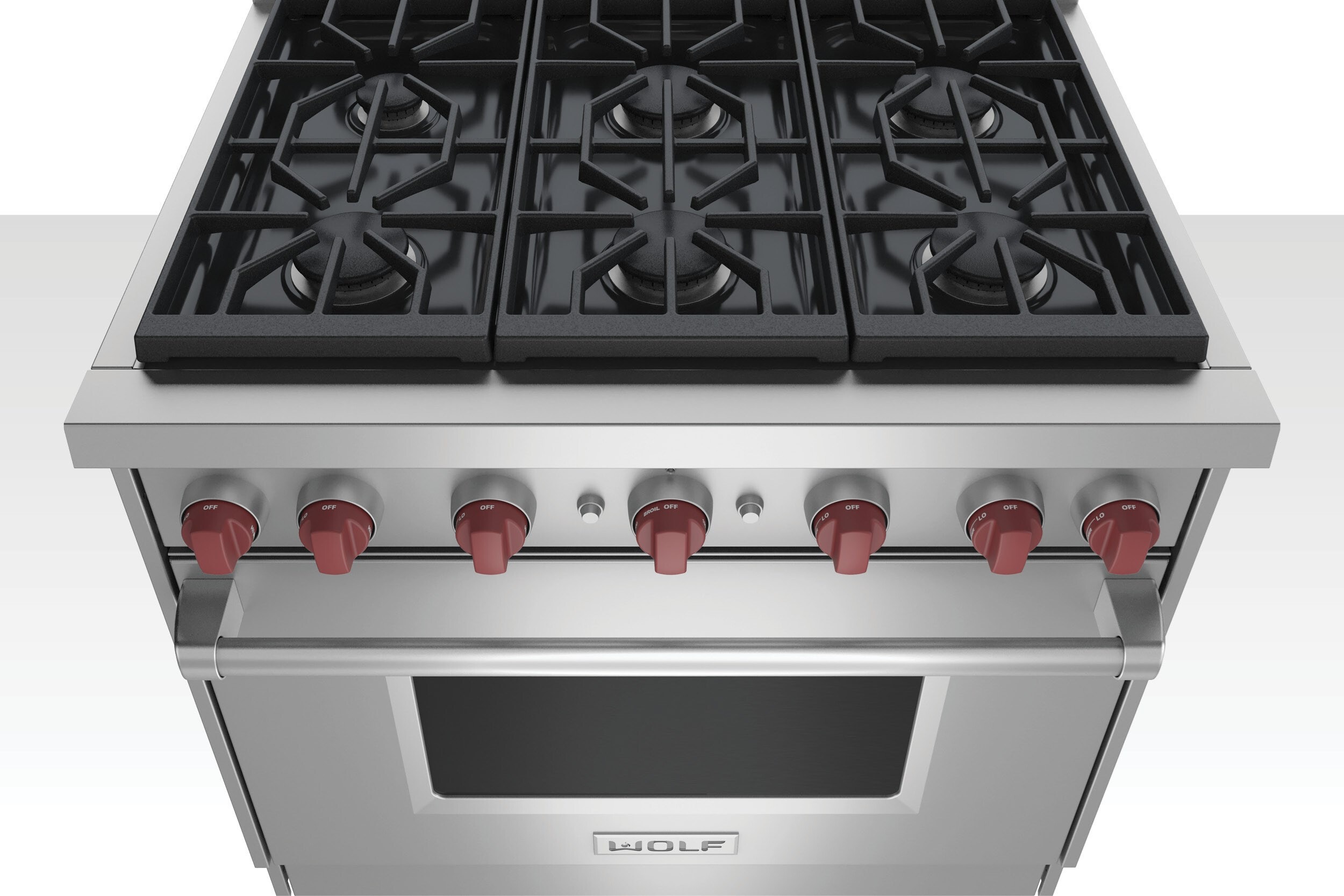When it comes to choosing a new kitchen appliance, one of the key decisions you’ll face is whether to opt for a gas range or an electric range. Both types of ranges have their own set of advantages and disadvantages, and the choice ultimately depends on your cooking preferences, lifestyle, and the infrastructure in your home. In this article, we’ll explore the differences between gas and electric ranges and highlight the advantages of each to help you make an informed decision.
Gas Range
Advantages:
1. Precise Temperature Control: Gas ranges provide instant and precise temperature control. When you turn the knob, the flame adjusts immediately, allowing you to increase or decrease the heat with great accuracy. This makes gas ranges ideal for tasks that require rapid temperature changes, such as searing, simmering, and stir-frying.
2. Even Heat Distribution: Gas burners typically distribute heat more evenly across the bottom of cookware. This ensures that your food cooks uniformly, reducing the risk of hot spots or uneven cooking.
3. Power Outage Resilience: Gas ranges can be used during power outages as they do not rely on electricity to function. This can be especially advantageous in areas prone to frequent power interruptions.
4. Professional Cooks’ Choice: Many professional chefs prefer gas ranges for their responsiveness and precise control. If you’re an avid cook or aspire to culinary excellence, a gas range may be your top choice.
5. Lower Operating Costs: In some regions, natural gas can be more affordable than electricity, resulting in lower long-term operating costs.

Electric Range
Advantages:
1. Ease of Cleaning: Electric ranges typically have smooth, flat cooktops that are easier to clean than gas grates and burner caps. Spills and splatters are easily wiped away.
2. Safety: Electric ranges eliminate the risk of gas leaks, making them a safer option for households with young children or those concerned about gas-related accidents.
3. Even Heating: Electric ranges often offer more consistent and even heating across the entire surface, which can be beneficial for tasks like baking and maintaining a steady simmer.
4. Modern Features: Electric ranges often come with advanced features such as induction cooking, which uses electromagnetic technology for rapid heating and precise temperature control. This can be a game-changer for serious cooks.
5. Energy Efficiency: Some electric ranges, particularly induction models, are highly energy-efficient. They heat up quickly and only transfer heat to the cookware, reducing wasted energy.
6. Design Flexibility: Electric ranges are available in various designs, including smooth glass tops, which can complement modern kitchen aesthetics.
Choosing the Right One for You
The choice between a gas range and an electric range ultimately comes down to your cooking style, preferences, and home setup. Here are some factors to consider when making your decision:
Cooking Preferences: If you love precision cooking and enjoy using high heat for tasks like searing, a gas range may be your preference. For baking and even cooking, electric ranges, especially those with induction cooktops, can be more suitable.
Safety Concerns: If safety is a top priority, or if you have small children at home, an electric range is generally considered safer due to the absence of an open flame and gas-related risks.
Budget and Energy Costs: Consider your budget not only for the initial purchase but also for long-term operating costs. Compare the cost of gas and electricity in your area to determine which is more economical.
Kitchen Aesthetics: The design and appearance of your kitchen may play a role in your decision. Electric ranges often offer more design flexibility with sleek, modern options.
Infrastructure: Check whether your kitchen is equipped with a gas line or electrical outlets suitable for your chosen range type. Converting from one type to another can be costly.
In conclusion, both gas and electric ranges have their own advantages, and the right choice for you depends on your specific needs and priorities. Take the time to evaluate your cooking habits, safety concerns, and budget to make an informed decision that will enhance your culinary experience in the kitchen. Whether you opt for the precision of a gas flame or the convenience of an electric cooktop, modern ranges offer a wide range of features to suit your cooking style.
